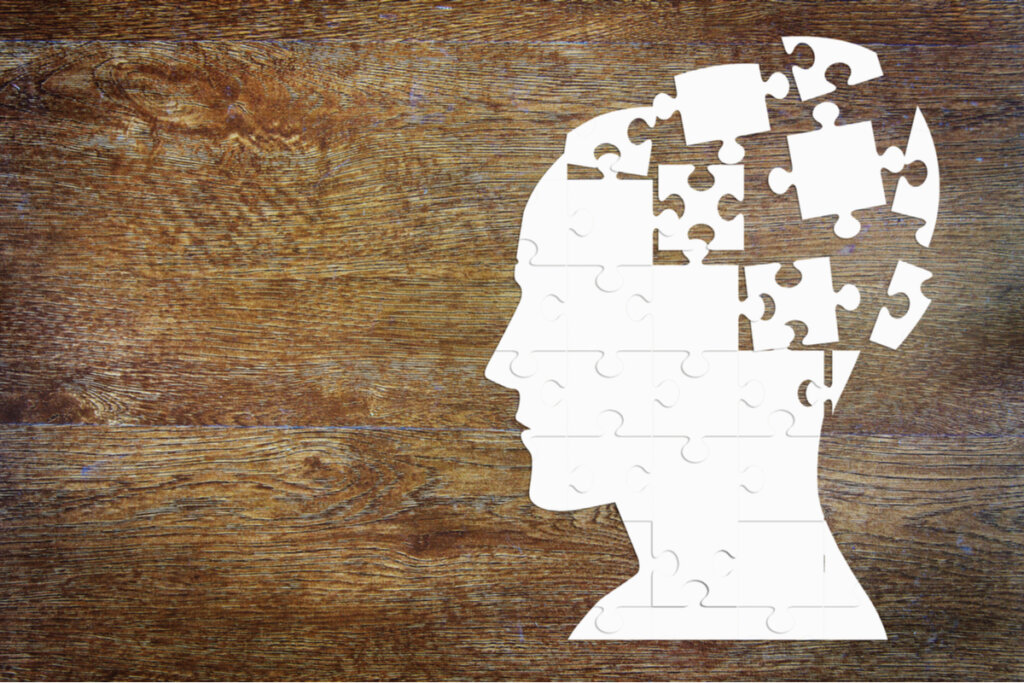The Most Effective Psychological Therapies


Written and verified by the psychologist Valeria Sabater
The most effective psychological therapies are those supported by a greater volume of scientific evidence when it comes to responding to a wide range of needs. As a rule, psychologists tend to employ one or several approaches so they can intervene with greater versatility and competence.
If you need specialized help, it’s a good idea to ask the professional what techniques they employ. This allows you to get to know their working methods and if this modality adjusts to your needs. Moreover, you can find out if the resource has good scientific support. Because not all psychotherapies, although they may seem so, are the same.
There’s no queen of psychotherapy that stands head and shoulders above the others. There are various effective models for dealing with different disorders.
The most effective psychological therapies
Some people, when requesting psychological help for the first time, ask for the best and most effective therapy. But, there are no therapeutic strategies that are superior to the rest in all areas. There are appropriate strategies for each individual circumstance and patient.
One of the most important factors in the effectiveness of psychological therapy is the skill of the professional. Consequently, there are many nuances for the patient who’s determined to take the plunge to consider. Most importantly, they must specify their needs and learn the ideal psychological therapies for their situation.
In this article, we’re going to explore five of the most effective psychotherapies.
1. Cognitive behavioral therapy
Cognitive behavioral therapy (CBT) is one of the most applied and studied forms of psychotherapy. In fact, a study published in the journal, Frontiers in Psychology describes it as the gold standard treatment for common mental disorders. It uses a variety of techniques that are both valid and beneficial for patients.
The basis of CBT
This model aims to make it easier for people to become aware of their dysfunctional mental patterns. The psychologist specializing in CBT helps the patient develop a healthier way of thinking and responding. They use multiple strategies such as cognitive restructuring, modeling, skills training, emotional management, and expository techniques.
When is CBT useful?
- Phobias.
- Depression.
- Addictions.
- Sleep disorders.
- Anxiety disorders.
- Post-traumatic stress disorder.
- Obsessive Compulsive Disorder (OCD).
- Eating disorders (EDs).
Today, CBT is the most widespread therapy. It’s also backed by the largest number of studies proving its effectiveness in different psychological conditions.

2. Acceptance and commitment therapy
One of the most effective psychological therapies is, without a doubt, acceptance and commitment therapy (ACT). This model makes it easier for the individual to integrate a richer, calmer, and healthier life perspective, by accepting the pain of many of their experiences. ACT is one of the contextual or third-generation therapies. It focuses on cognition, language, and interaction with the environment.
The basis of ACT
Acceptance and commitment therapy seeks to reorient the individual’s life through self-discovery and reformulation of values. They also work on their emotions, thoughts, and memories through the meanings they receive via language.
Research conducted by the University of Basel (Switzerland) highlights the efficiency of ACT in a wide range of conditions. It’s a versatile therapy for multiple processes. (Hayes, Strosahl, & Wilson, 1999; Wilson & Luciano, 2002).
When is ACT useful?
- Grief.
- Depression.
- Addictions.
- Chronic pain.
- Work stress.
- Relationship problems.
- Coping with illness.
- Anxiety disorders.
- Post-traumatic stress disorder (PTSD).
- Obsessive-compulsive disorder (OCD).
3. Systemic therapy
Systemic therapy provides a safe and enriching setting for attending to relational problems, conflicts, and tensions. It’s an interesting approach that addresses challenges with partners, family, or work.
The basis of systemic therapy
This therapeutic model works to identify the dysfunctional patterns that cause the individual discomfort with figures in their environment. The method helps them understand in what ways realities such as communication, beliefs, and all those behaviors that originate within a given system are affected.
Williams College University (USA) conducted a study that claims that, in the last 25 years, systemic therapy has been one of the most solid in the family and couple environment.
When is systemic therapy useful?
- Work problems.
- Relationship problems.
- Family relationships.
- Interpersonal conflicts.
4. Dialectical behavior therapy
Dialectical behavior therapy (DBT) is a valid model for addressing self-destructive behaviors and emotional malregulation. It focuses on helping individuals develop skills in the following four specific areas:
- Emotional development.
- Tolerance of distress.
- Interpersonal skills.
- Relaxation/full attention/impulse control.
The basis of DBT
DBT is a highly structured type of therapy that helps the individual integrate a set of skills (García Palacios, 2004). It was developed by Dr. Marsha M. Linehan and forms part of CBT. It also integrates mindfulness.
When is DBT useful?
- Posttraumatic stress.
- Suicidal tendencies.
- Borderline personality disorder (BPD).
- Children and adolescents with dysregulated, aggressive, or challenging behaviors.
5. Brief strategic therapy
Brief strategic therapy (BST) is one of the most effective psychological therapies for improving ways of coping. The method was created by Giorgio Nardione and Paul Watzlawick. It stands out for being a resource that tends to generate solutions in fewer sessions.
BST helps the patient break vicious circles or provides them with simple tools that make them feel better. It facilitates the goal of making deeper changes based on positive states of mind.
The basis of BST
This therapeutic approach tries to understand how the patient constructs their reality and its associated dysfunctional patterns. It addresses the following three spheres: perceptions, emotional management, and maladaptive behavioral patterns.
The psychologist guides the patient to discover their own abilities and potential, in order to deactivate the dynamics of their problems.
When is BST useful?
- Depression.
- Sexual problems
- Family and couple problems.
- Eating disorders (EDs).
- Anxiety, panic attacks, phobias, obsessions, psychosomatic disorders.

The importance of knowing the most effective psychological therapies
Approaching psychology for the first time can be a little overwhelming, due to the number of variants there are. Therefore, knowing about the most effective therapeutic models is useful. All of the approaches we’ve described here have been in operation for several decades and have changed the lives of many people.
Finally, don’t hesitate to look for specialized professionals. There are many different kinds who are empowered in different approaches which enriches the kinds of therapy available. These theories guide the professional to better understand the reality of the patient and provide resources in favor of their particular needs.
The most effective psychological therapies are those supported by a greater volume of scientific evidence when it comes to responding to a wide range of needs. As a rule, psychologists tend to employ one or several approaches so they can intervene with greater versatility and competence.
If you need specialized help, it’s a good idea to ask the professional what techniques they employ. This allows you to get to know their working methods and if this modality adjusts to your needs. Moreover, you can find out if the resource has good scientific support. Because not all psychotherapies, although they may seem so, are the same.
There’s no queen of psychotherapy that stands head and shoulders above the others. There are various effective models for dealing with different disorders.
The most effective psychological therapies
Some people, when requesting psychological help for the first time, ask for the best and most effective therapy. But, there are no therapeutic strategies that are superior to the rest in all areas. There are appropriate strategies for each individual circumstance and patient.
One of the most important factors in the effectiveness of psychological therapy is the skill of the professional. Consequently, there are many nuances for the patient who’s determined to take the plunge to consider. Most importantly, they must specify their needs and learn the ideal psychological therapies for their situation.
In this article, we’re going to explore five of the most effective psychotherapies.
1. Cognitive behavioral therapy
Cognitive behavioral therapy (CBT) is one of the most applied and studied forms of psychotherapy. In fact, a study published in the journal, Frontiers in Psychology describes it as the gold standard treatment for common mental disorders. It uses a variety of techniques that are both valid and beneficial for patients.
The basis of CBT
This model aims to make it easier for people to become aware of their dysfunctional mental patterns. The psychologist specializing in CBT helps the patient develop a healthier way of thinking and responding. They use multiple strategies such as cognitive restructuring, modeling, skills training, emotional management, and expository techniques.
When is CBT useful?
- Phobias.
- Depression.
- Addictions.
- Sleep disorders.
- Anxiety disorders.
- Post-traumatic stress disorder.
- Obsessive Compulsive Disorder (OCD).
- Eating disorders (EDs).
Today, CBT is the most widespread therapy. It’s also backed by the largest number of studies proving its effectiveness in different psychological conditions.

2. Acceptance and commitment therapy
One of the most effective psychological therapies is, without a doubt, acceptance and commitment therapy (ACT). This model makes it easier for the individual to integrate a richer, calmer, and healthier life perspective, by accepting the pain of many of their experiences. ACT is one of the contextual or third-generation therapies. It focuses on cognition, language, and interaction with the environment.
The basis of ACT
Acceptance and commitment therapy seeks to reorient the individual’s life through self-discovery and reformulation of values. They also work on their emotions, thoughts, and memories through the meanings they receive via language.
Research conducted by the University of Basel (Switzerland) highlights the efficiency of ACT in a wide range of conditions. It’s a versatile therapy for multiple processes. (Hayes, Strosahl, & Wilson, 1999; Wilson & Luciano, 2002).
When is ACT useful?
- Grief.
- Depression.
- Addictions.
- Chronic pain.
- Work stress.
- Relationship problems.
- Coping with illness.
- Anxiety disorders.
- Post-traumatic stress disorder (PTSD).
- Obsessive-compulsive disorder (OCD).
3. Systemic therapy
Systemic therapy provides a safe and enriching setting for attending to relational problems, conflicts, and tensions. It’s an interesting approach that addresses challenges with partners, family, or work.
The basis of systemic therapy
This therapeutic model works to identify the dysfunctional patterns that cause the individual discomfort with figures in their environment. The method helps them understand in what ways realities such as communication, beliefs, and all those behaviors that originate within a given system are affected.
Williams College University (USA) conducted a study that claims that, in the last 25 years, systemic therapy has been one of the most solid in the family and couple environment.
When is systemic therapy useful?
- Work problems.
- Relationship problems.
- Family relationships.
- Interpersonal conflicts.
4. Dialectical behavior therapy
Dialectical behavior therapy (DBT) is a valid model for addressing self-destructive behaviors and emotional malregulation. It focuses on helping individuals develop skills in the following four specific areas:
- Emotional development.
- Tolerance of distress.
- Interpersonal skills.
- Relaxation/full attention/impulse control.
The basis of DBT
DBT is a highly structured type of therapy that helps the individual integrate a set of skills (García Palacios, 2004). It was developed by Dr. Marsha M. Linehan and forms part of CBT. It also integrates mindfulness.
When is DBT useful?
- Posttraumatic stress.
- Suicidal tendencies.
- Borderline personality disorder (BPD).
- Children and adolescents with dysregulated, aggressive, or challenging behaviors.
5. Brief strategic therapy
Brief strategic therapy (BST) is one of the most effective psychological therapies for improving ways of coping. The method was created by Giorgio Nardione and Paul Watzlawick. It stands out for being a resource that tends to generate solutions in fewer sessions.
BST helps the patient break vicious circles or provides them with simple tools that make them feel better. It facilitates the goal of making deeper changes based on positive states of mind.
The basis of BST
This therapeutic approach tries to understand how the patient constructs their reality and its associated dysfunctional patterns. It addresses the following three spheres: perceptions, emotional management, and maladaptive behavioral patterns.
The psychologist guides the patient to discover their own abilities and potential, in order to deactivate the dynamics of their problems.
When is BST useful?
- Depression.
- Sexual problems
- Family and couple problems.
- Eating disorders (EDs).
- Anxiety, panic attacks, phobias, obsessions, psychosomatic disorders.

The importance of knowing the most effective psychological therapies
Approaching psychology for the first time can be a little overwhelming, due to the number of variants there are. Therefore, knowing about the most effective therapeutic models is useful. All of the approaches we’ve described here have been in operation for several decades and have changed the lives of many people.
Finally, don’t hesitate to look for specialized professionals. There are many different kinds who are empowered in different approaches which enriches the kinds of therapy available. These theories guide the professional to better understand the reality of the patient and provide resources in favor of their particular needs.
All cited sources were thoroughly reviewed by our team to ensure their quality, reliability, currency, and validity. The bibliography of this article was considered reliable and of academic or scientific accuracy.
- A-Tjak, J. G., Davis, M. L., Morina, N., Powers, M. B., Smits, J. A., & Emmelkamp, P. M. (2015). A meta-analysis of the efficacy of acceptance and commitment therapy for clinically relevant mental and physical health problems. Psychotherapy and psychosomatics, 84(1), 30–36. https://pubmed.ncbi.nlm.nih.gov/25547522/
- David, D., Cristea, I., & Hofmann, S. G. (2018). Why Cognitive Behavioral Therapy Is the Current Gold Standard of Psychotherapy. Frontiers in psychiatry, 9, 4. https://www.ncbi.nlm.nih.gov/pmc/articles/PMC5797481/
- Gloster, A. T., Walder, N., Levin, M. E., Twohig, M. P., & Karekla, M. (2020). The empirical status of acceptance and commitment therapy: A review of meta-analyses. Journal of Contextual Behavioral Science. Elsevier Inc. https://www.sciencedirect.com/science/article/pii/S2212144720301940
- Hayes, S. C., Strosahl, K. D., & Wilson, K. G. (1999). Acceptance and Commitment Therapy: An experiential approach to behavior change. New York: Guilford Press.
- Heatherington, L., Friedlander, M. L., Diamond, G. M., Escudero, V., & Pinsof, W. M. (2015). 25 years of systemic therapies research: progress and promise. Psychotherapy research : journal of the Society for Psychotherapy Research, 25(3), 348–364. https://pubmed.ncbi.nlm.nih.gov/25506726/
- Watzlawick, P. & Nardone, G. (2000). Terapia Breve Estratégica. Barcelona: Paidós. https://www.planetadelibros.com/libros_contenido_extra/29/28315_Terapia_breve_Estrategica.pdf
- Wilson, K. G., & Luciano, C. (2002). Terapia de Aceptación y Compromiso: Un Tratamiento conductual orientado a los valores [Acceptance and Commitment Therapy: A behavioral therapy oriented to values]. Madrid: Pirámide.
This text is provided for informational purposes only and does not replace consultation with a professional. If in doubt, consult your specialist.







